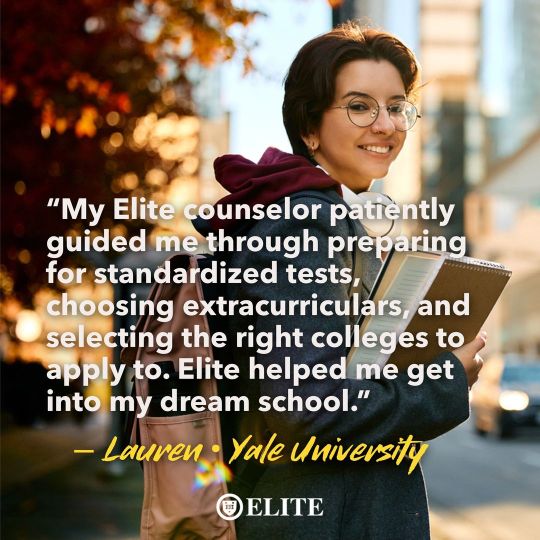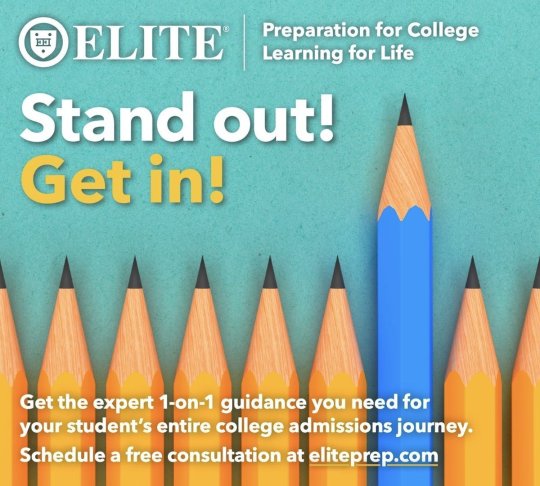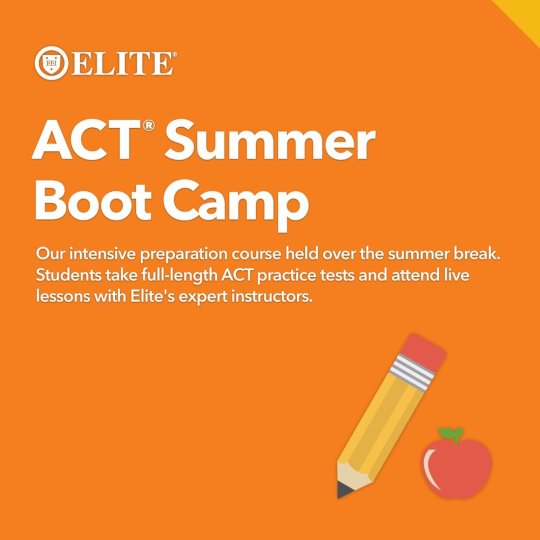Text

Words of Wonder: Emily Dickinson Edition
More about these words (and the poems where I found them) at my newsletter:
https://incidentalcomics.substack.com/p/emily-dickinsons-words
319 notes
·
View notes
Text

Elite Premier Tutoring and Academics Management helps students in grades 5-12 excel in nearly all school subjects and on nearly all standardized tests, including SAT, ACT, AP, ISEE, SSAT, and more.
Your initial consultation with an Elite counselor includes a complete student assessment of GPA, study habits, and personality traits. Together we’ll identify problem areas, set concrete goals, and make a plan of action for academic success.
Your student will receive regular, customized tutoring with an expert instructor, who will help them raise their scores, develop curiosity, and build powerful study skills that they will use throughout college and beyond.
🔗 Learn more at https://eliteprep.com/premier 🔍
#studyblr#study tips#tutoring#private tutoring#high school#education#college prep#college admissions
0 notes
Text

1 note
·
View note
Text

As universities across the US tout record application numbers and record-low admissions rates, college admissions seem to get more and more competitive. That means more and more is expected of high school students looking to gain admission to the nation’s most competitive universities.
With so many students earning GPAs well over 4.0 and SAT scores over 1500, it can be difficult for admissions officers and interviewers to distinguish between one elite candidate and another.
One of the primary ways candidates stand out among an elite pack is through their extracurricular activities lists. When building your activities list, keep in mind that “activities” means more than school clubs and organizations. Activities can include a job outside of school, a passion project you’ve been working on independently, or even a family obligation, such as taking care of your siblings.
Transcripts are records of your time spent in school; the activities list are records of your time spent outside of school. If you’ve done something meaningful outside of school hours—for your own personal development or for others—then you should consider including it in your activities list.
So, how do you build an activities list that will stand out?
⏳ TIME IS MONEY 💰
Admissions officers are not impressed that you spent three hours one week volunteering at a nearby nursing home. They are also not moved by the fact that you attended monthly one-hour meetings for your school’s video game club.
Of course, you should volunteer, even if it does not demand a significant time commitment. And yes, attend those monthly meetings. Depending on how much you’ve done outside of school, you might want to include one-time volunteer work or minor engagement with a school organization, but neither of these should be at the top of your list.
Admissions officers are impressed with sustained engagement. Your activities list should communicate passion and commitment. What is most important is that you list activities that demand several hours of commitment each week, and that you have kept up with that commitment for the long haul—the longer, the better.
Practiced the piano five hours a week since eighth grade? Get credit for all that work here. The time you spent in high school is the raw material for making a compelling case for why you belong at the school of your dreams.
It is going to take commitment and passion to be a meaningful contributor to a university community. By demonstrating long-term commitment to activities you are passionate for, especially activities with social merit, you show admissions officers that you’re capable of bringing that energy to their university.
TAKE THE LEAD
There is an art to being an effective follower, and most universities do, or at least should, value that kind of work. But most universities also put a premium on leadership. In addition to demonstrating that you are committed and passionate, you need to show that you are capable of leading a group and of bringing people together to accomplish an important task.
This means being president of a club or captain of a team. It can also means taking initiative by starting a club or group that wasn’t there before you arrived.
It is also worth noting that leadership is not limited to schools or outside organizations. If you take a leadership role at home—with your family business, or by taking care of your siblings—it is important that you gain recognition for this work, too. Make sure to include any meaningful task that has demanded your time.
BE “SPECIFIC AND STORIED”
As with recommendation letters, the best activities lists are “specific and storied.” That is, your activities list needs to be detailed, with strong action verbs. Your activities list needs to give narrative shape to you as an accomplished individual with a world of potential.
Who are you? That’s what admissions officers want to know. Your friends and family might know your essential self, independent of your actions today or yesterday. But admissions officers will only know you by how you’ve spent your time.
In order to be specific and storied, focus on describing your activities with strong action verbs.
Take these descriptions of the same activity. Which is better?
President, Chess Club
Held weekly meetings to discuss and practice chess.
President, Chess ClubOversaw weekly meetings to develop strategies; coordinated practices of ten to fifteen members to hone skills.
The first tells it like it is, but the second shows us much more. Why is the second stronger? “Oversaw” implies action and direction, whereas “held” feels more passive. “Coordinated” reveals an act that the first one conceals: this student had to make announcements, recruit new club members, and follow up with the existing members, but all that work gets lost in the vague description of the first listing. “Hone skills” digs into the purpose of these meetings, whereas “discuss” fails to reveal that purpose.
In order to tell the admissions committee who you are, use action verbs to show them what you’ve done. Refer to this list for examples of action phrases and action verbs that can separate your activities list from others.
#college prep#college admissions#high school#extracurricular activities#extracurriculars#college#go to college#studyblr
0 notes
Text

3 notes
·
View notes
Text

Sometimes being a student can feel a little more like being an audience member in a show you’d probably rather get a refund for, except that you can’t because you’re mandated by law (and probably your parents) to be in class five days a week where you are expected to pay attention, complete assignments, and pass tests. It sure can feel like you don’t have a lot of freedom. But actually, you do.
In any given situation, you always have the option to claim a certain amount of control.
One way to exercise this control is to choose activity rather than passivity whenever possible. And one great way to be more active is to develop positive relationships with your teachers. In fact, this could be the very key to revolutionizing your whole scholastic experience.
Teachers are so much more than experts on the subjects they teach. They are mentors who, given the chance, can provide you with support and even offer life-changing advice. They are also community members who may know about all kinds of local competitions, activities, internships, or scholarships. Plus, don’t forget that they are are the ones you will need to ask for college application letters of recommendation. If they don’t know you, how can they write letters promoting you?
If nothing else, having personal connections with teachers will deepen your investment in their classes, leading to more enjoyment, more desire to pay attention, and more motivation to do well.
Before we get into some suggestions for taking an active role and cultivating good relationships with your teachers, a couple points of caution to keep in mind:
Don’t be too pushy. You typically want to stay away from interrupting people or taking teachers away from their work too often. Furthermore, careful not to instigate unnecessary conflict. Questioning a grade or asking to retake a test once is fine, but challenging missed points on assignments or asking for extra credit all the time may put a strain on your relationship with your teacher.
Don’t be a suck-up. Teachers can usually tell when your only motivation is to get a college recommendation letter or special treatment. Hogging teacher time or coming off as overly sycophantic will probably cause your classmates to resent you too.
What to Do in Class
Show up to class regularly and on time.
Punctuality is about more than keeping up with class material and maintaining your attendance score; it’s about demonstrating respect and integrity. It’s showing you’re ready to take advantage of the opportunities presented to you.
Act engaged in class.
To acknowledge you hear what the teacher is saying (and to aid in your concentration), try nodding your head in agreement, reacting with facial expressions, taking notes, and participating in class discussions. When you look and act interested in class, teachers notice and feel both appreciated and appreciative. Plus, you’ll feel more personally connected to the material, and the teacher.
Communicate openly.
If you know you will have to miss class or if you don’t understand something, clearly let your teacher know by asking questions before, during, and/or after class. You’ll stay caught up, increase self-efficacy, and demonstrate your commitment to succeeding.
Be agreeable.
If a teacher asks you to do something, such as group work, comply readily and even take a leadership approach if you can. Being a self-starter, rather than a dawdler who needs to be asked twice, will remind you of control you have while enhancing the positive bond between you and your teachers.
Always treat everyone well.
I know you already know this one, but sometimes we get lazy and let our inner-bullies make snappy comments to classmates. Be aware that your teachers observe your interactions, which provide more data about your character. Only you have control over your kindness and helpfulness.
What to Do Outside of Class
Make an appointment with your teacher.
If there isn’t enough time before or after classes to interface with your teachers, you can often schedule a private conference during lunch or a free period. Now you’re really taking things into your own hands! Privately, you’ll be free to discuss topics such as your progress in class, mutual interests, and possible extracurricular opportunities. At the very least, you will have showcased your willingness to succeed.
Facilitate conversation.
When talking with a teacher outside of class, showing interest in anything about their lives can help you develop rapport. You can ask questions, and then remember to check in later about those personal details they’ve shared with you. Don’t forget that listening during interactions will tend to make you more likable, so aim for a good balance of talking and listening.
Be your genuine self.
(First of all, always be your genuine self wherever you are!) In front of your teachers, you don’t need to be the perfect student. You can share honest details about your life, dreams, or concerns. Showing vulnerability humanizes people, leading to more understanding and appreciation of one another.
Get involved in activities outside of class.
Going to optional review sessions or volunteering for a campus cleanup your teacher is hosting shows initiative and that you care about yourself and others. When you volunteer, you show yourself you have choices, and you choose to invest in your life.
You can see how much control you can have over your classroom experience. You can start small; do something a little differently in class, and see how it feels. Be open to seeing your role as a student differently. If you feel intimidated by certain teachers, don’t forget that sometimes initial impressions can be quite deceiving. What you perceive as a “mean” teacher who “doesn’t like you” could just be a stressed out teacher. Or perhaps a strict, albeit caring, teacher hoping to use discipline as a way to motivate you.* Give them a chance and you might be surprised what you get out of connecting more with your teachers.
In the end, of course, it’s completely your choice whether to be a passive audience member or an active cast member.

*Sometimes, teachers are legitimately mean or inappropriately harsh, in which case please let your counselor or school admin know as soon as possible.
2 notes
·
View notes
Text

🎓 Work with our experienced counselors to set yourself apart from other applicants and craft an outstanding college application package that shines a light on who you are and what you’ve achieved.
Learn more here.
1 note
·
View note
Text

If you're feeling nervous about taking your first AP exam, CollegeBoard offers some practical advice for you to enter test day with confidence.
0 notes
Text

6 notes
·
View notes
Text

Elite Admissions Counseling:
Make your college apps extraordinary and get into your dream school. For grades 8-12.
AP Courses for Credit:
Take extra AP courses to boost your GPA + build a jaw-dropping high school transcript.
Elite Premier Tutoring:
Get ahead and stay ahead in every subject with expert guidance from Elite tutors.
SAT, ACT & AP Prep:
Hit your target scores and get noticed with Elite’s world-famous test prep programs
LEAD Extracurriculars:
Display intellectual curiosity and gain experience for a major admissions advantage
Now enrolling! Contact your Elite branch today to schedule a free college prep consultation: https://eliteprep.com/locations
0 notes
Text

💻📸 Looking for meaningful, impactful extracurricular activities to demonstrate your academic passion? Elite will be offering a wide range of LEAD Extracurricular programs this summer.
Learn more here. 👈
0 notes
Text

As high school juniors approach the final stretch of their secondary education, the prospect of college looms on the horizon. With the college application season fast approaching, juniors need to lay the groundwork for a successful outcome. While students won’t be submitting college applications until October or November at the earliest, we advise students to start preparing for the next part of the process this spring.
Here's a checklist of what high school juniors should be doing starting April of their 11th grade:
☐ Self-Reflection and Goal-Setting
Take some time to reflect on your interests, strengths, weaknesses, and long-term aspirations. What do you want to study? What activities do you want to participate in during college to prepare you for life after college whether it be a job or graduate/professional school? What type of college environment suits you best? Are you looking for the excitement of a large university campus with the ability to enjoy college sports events and cutting-edge research or do you prefer a smaller school setting that emphasizes classroom discussion and building relationships with faculty members and peers? Setting clear academic and personal goals will guide you in selecting colleges and crafting your application essays.
☐ Research Colleges
Begin researching potential colleges and universities that align with your academic and personal preferences. Consider factors such as location, size, academic programs, extracurricular activities, and campus culture. Create a list of reach, match, and safety schools to ensure a well-rounded selection of options.
☐ Attend College Fairs and Information Sessions
You can learn only so much about a college from websites and guidebooks. Take advantage of college fairs, information sessions, and campus tours to gather firsthand knowledge about different institutions and their surrounding community. Engage with admissions officers, current students, and alumni to gain insights into campus life and academic opportunities.
☐ Prepare for Standardized Tests
While some institutions like the University of California are test-blind, most colleges and universities are test-optional–and the fact that these institutions consider standardized tests shows that test scores provide important information about you in the college admission process. Furthermore, several prominent universities have reverted to requiring applicants to submit SAT or ACT scores as a part of the application.
If you haven't already done so, begin preparing for standardized tests such as the SAT or ACT. Consider enrolling in test prep courses at Elite Prep this summer, where you will take weekly practice tests and work through problem sets to identify areas for improvement. Aim to complete standardized testing by the end of your junior year or early in your senior year.
☐ Focus on Academics
Maintain a strong academic performance during your junior year. Your grades and course rigor are the most important part of your application, so prioritize challenging coursework and strive for excellence in your classes. Seek help from teachers or tutors if you're struggling in any subject.
Furthermore, select courses for your senior year that will allow you to develop the knowledge and skills in your area of interest and prepare you for college-level coursework. Students interested in applying to highly selective colleges should take advanced-level courses in the five core subjects of English, math, science, history/social science, and foreign language. In college, students are expected to take courses in subjects outside of their primary area of study (e.g., engineering majors are usually required to take courses in English, history, foreign language, and art in addition to math and science) – you want to show colleges you’re ready to dive into the educational experience after high school. Elite Prep offers for-credit honors and AP courses to help high school students boost their GPA and strengthen their academic preparation.
☐ Build Relationships with Teachers
Many public and private colleges and universities require applicants to submit recommendation letters from their teachers. Cultivate relationships with teachers who can potentially write strong letters of recommendation for your college applications. Participate actively in class, seek assistance when needed, and engage in discussions to demonstrate your commitment to academic excellence – in short, show teachers that you enjoy being in their class.
☐ Deepen Your Extracurricular Involvement
Dedicate time to extracurricular pursuits that genuinely interest you and showcase your talents, passions, and leadership skills. Whether it's sports, clubs, volunteer work, or part-time jobs, involvement in meaningful activities demonstrates your multifaceted personality and commitment to community engagement. Focus on activities you plan to continue pursuing in college – colleges are interested in learning what you will bring to the college campus and how you will contribute to the community.
☐ Start Drafting Your Resume
Create a resume highlighting your academic achievements, extracurricular involvement, leadership roles, community service, awards, and employment history. A well-crafted resume will serve as a valuable reference when completing college applications and scholarship submissions as well as participating in interviews conducted by colleges through admission officers or alumni members.
☐ Begin Brainstorming Essay Topics
Start brainstorming potential essay topics for the personal statement or college-specific supplemental essays. Reflect on significant experiences, challenges overcome, moments of personal growth, and your unique perspective. Allow yourself time to explore different ideas and refine your narrative. Each college you apply to will require one or more essays, and the length of these essays will vary from 250 words to 650 words. Meet with an Elite Prep counselor if you need help figuring out how to present your authentic self to college admission officers in personal statements and essays.
☐ Stay Organized and Create a Timeline
Establish a timeline outlining key deadlines for college applications, financial aid forms, and standardized tests. Stay organized by creating a checklist of tasks to complete each month, ensuring you stay on track and avoid last-minute rushes. Meet with an Elite Prep Counselor to discuss how we can help guide you through the entire college application process.
By taking these steps starting in April of your junior year, you'll set yourself up for success in the college application process. Remember, the journey to college is not just about securing admission to a prestigious institution but also about self-discovery, personal growth, and embracing new opportunities.
Stay focused, stay motivated, and embrace the exciting journey ahead!
0 notes
Text

Why aren’t Americans saving enough for retirement? Economics, of course, plays a factor; the twenty-first century has seen a rise in income inequality and sharp spikes in the cost of living throughout many of the nation’s major cities.
But in 2009, scientists at UCLA completed a study [PDF] that determined there may also be a neurological basis for this growing trend. Led by psychologist Hal Herschfield, the research group scanned the brains of study participants while asking them questions about (1) their Current Self, (2) their Future Self, (3) a Current Other, and (4) a Future Other.
The team found that the participants’ brain activity when answering questions about their Future Self was more consistent with their brain activity while considering a Current Other rather than their Current Self.
“Put in practical terms,” explains Becky Kane, editor at Doist, “when thinking of yourself in a month or a year or a decade, your brain registers that person in ways similar to how it would register Taylor Swift or the mailman or the lady driving the car in the next lane over.”
In short: It’s not you. It’s your brain.
Chances are you have experienced the disastrous consequences of this bad neurological deal. Cramming for a test. Pulling an all-nighter for a paper. Hastily, stressfully preparing for a project. Not to mention that when we procrastinate, we often feel stressed while we aren’t doing the work we’re supposed to be doing.
Anyway you cut it, procrastination is a killer. It hampers our ability to achieve our goals, heaps stress onto our Future Self, and it usually doesn’t provide the instant gratification to our Present Self that it seems to guarantee.
So, how do you battle this beast if it’s part of your neurological wiring?
1. Recognize That Your Future Self and Present Self Are the Same Person
Easier said than done, I know.
This seems especially difficult when you’re young. Many young people hold onto an unconscious conviction that they will be smarter, more efficient, and better prepared tomorrow than they are today. Tomorrow’s self, we think, is better, stronger, faster.
Except it often isn’t. It’s just as likely that tomorrow’s self will be more tired, more stressed, and equally or more distracted.
Mending the gap between your Present and Future Self can be as simple as repeating the mantra, “Don’t put off until tomorrow what you can do today.”
But perhaps a more effective strategy is to visualize and to try to inhabit that Future Self.
In recent years, Hal Herschfield and Daniel Goldstein have used software that allows participants to visualize themselves at 60, 70, and 80 years old. They have found that seeing this Future Self helps people commit to investing more into their future retirement.
On a smaller scale—for a final project, SAT preparation, or college applications, where the goal is much closer at hand—try to very deliberately imagine your day tomorrow or next week, whenever you imagine your Future Self will be so incredibly productive. Write down the details.
What gets in the way of that Future Self? Why is this Future Self free from distractions that the Present Self struggles with? Are there reasons other than a vague conviction that you can do better later?
If not, get to work. You’ll thank your Past Self later.
2. Treat Your Future Self Like Someone You Love
This brings me to my second point, a twist on the old adage, “Treat yourself like someone you love.”
This approach entails embracing rather than resisting your neurological makeup.
Think, OK, fine: I am bound to imagine my Future Self as a whole other person. Your job is to bring that other in close.
Imagine the option before you is this: either you can do the work you need to do now or you can leave it for someone you care for deeply, someone you feel the need to protect—a sibling, a grandparent, a best friend.
Turn your Future Self into an actual other person, but one that you care for deeply. You might then find the motivation to save that loved one from your present burden.
3. Focus...and Embrace Distraction When It Comes
Here’s a trick I practiced in graduate school.
If you’re like most ambitious teenagers, you have a lot going on. Sometimes, the sheer number of tasks can leave you feeling drained before you even begin.
It’s always best to focus on one task at a time. Clear off your desk of all distractions but that one, most pressing thing. This is a key technique advocated by Randy Pausch in this popular lecture on time management.
Close out all those excess tabs on your browser and get to the one or two windows you need. Split your screen in half to a word processor and one browser window. These are practical tactics that work.
But if you find your mind drifting, you might just want to let it drift…but take control of the wheel.
It’s natural to get distracted, but instead of diving into social media, pick up another project. Work on that for the ten or two-hundred minutes (no judgment) you might otherwise waste online.
This way, you can feed that little dopamine addict in your skull while chipping away at the tasks at hand.
4. Get Real (Visual) About Your Time
It’s not infinite, even though it might sometimes feel that way. Teenagers often hear, “you have plenty of time!” Which is true until you have none. Time is finite and unforgiving.
One way to visualize this scarcity of time is to take a look at this chart by Tim Urban, founder of waitbutwhy.com. Urban maps out a 90-year life in weeks. If you’re facing a semi-long-term goal, like acing the SAT, you can take a slice of this chart to envision just how little time you have. (Credit to Becky Kane for linking to this.)

This chart is especially useful because it reduces time into homogenous blocks. We often imagine our future time will be filled with epiphanies struck by the wand of genius. But this big, monotonous breakdown of our weeks reminds us that that’s often not the case.
Next week is a hollow little block, just like this week. Might as well get to it now.
5. Out of Control? Find a Commitment Device
In a 2014 Elite blog post, Ethan Sawyer described how he learned to overcome procrastination (mostly):
“One day I read something that really hit me: The next time you think, ‘I’ll do it later,’ do it now instead. Repeat this 20 times. I don’t remember where I read it, but I do remember feeling tired of not getting things done. So I tried it. And it actually worked.”
This is a simple version of what Daniel Goldstein calls a “commitment device.” As a postdoctoral fellow at Columbia University, Goldstein forced himself to write five pages per day. If he didn’t, he forced himself to leave $5 on the subway in an envelope.
These are dangerous—your Present Self might manage to find an excuse as to why you can cheat just this once, or twice, or thrice, or…
But if you find your discipline waning and that you need an external control, a commitment device is worth a shot.
--
Keep in mind that we are always developing habits. Procrastinate now and you will get good (and used to) procrastinating in the future.
Our teenage years are a time to develop habits for adult life. If you don’t address your bad procrastination habits now, you are essentially, well, procrastinating. Don’t sabotage your Future Self, who will find the habit harder to kick then than it will be for your Present Self today.
#productivity#stress management#procrastination#studyblr#study tips#high school#college#college prep
2 notes
·
View notes
Text

1 note
·
View note
Text

📝💡 A great ACT score can transform a good college application into an outstanding one. Our proven ACT practice tests, strategies, and study methods help students gain the knowledge and confidence they need to excel on the day of the test.
Learn more.
0 notes
Text

🎓🤝 Work with our experienced counselors to set yourself apart from other applicants and craft an outstanding college application package that shines a light on who you are and what you’ve achieved.
Learn more.
0 notes
